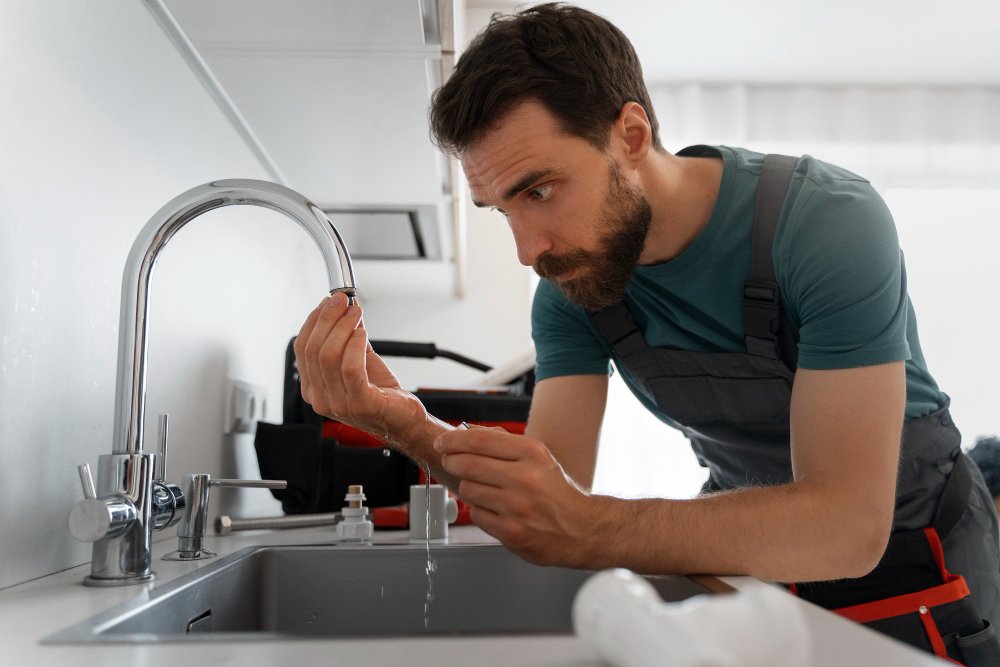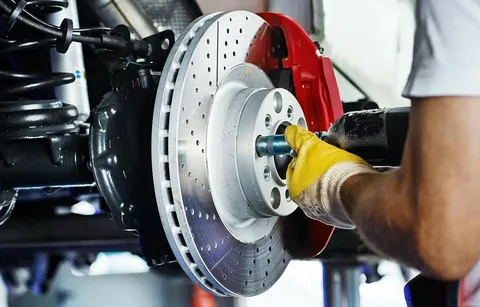Water pressure problems can turn simple tasks—like taking a shower or washing dishes—into frustrating experiences. Whether it’s low water pressure that slows everything down or high pressure that damages your plumbing, understanding the root cause is essential. In this guide, we’ll explore common water pressure issues, their causes, and how to resolve them.
What Is Water Pressure and Why Does It Matter?
Water pressure is the force that moves water through your pipes and out of your fixtures. It’s measured in pounds per square inch (PSI). A healthy water pressure typically ranges between 40–60 PSI.
- Low water pressure slows water flow, making daily activities inefficient.
- High water pressure can strain pipes, causing leaks or bursts.
Maintaining the right pressure keeps your plumbing system functional and efficient.
Common Causes of Low Water Pressure
- Clogged Pipes or Fixtures
Over time, mineral deposits, rust, or debris can clog pipes and fixtures, reducing water flow.- Signs: Weak flow from one fixture (like a sink or showerhead).
- Solution: Clean aerators or showerheads, or call a plumber for pipe descaling.
- Leaking Pipes
A leak in your plumbing system can significantly lower pressure.- Signs: Damp spots, water stains, or a higher-than-normal water bill.
- Solution: Inspect for leaks or consult a professional plumber.
- Corroded Pipes
Older homes with galvanized steel pipes are prone to corrosion, which blocks water flow.- Signs: Gradual pressure loss over time.
- Solution: Pipe replacement (consider PEX or copper for longevity).
- Municipal Water Supply Issues
Sometimes the problem isn’t in your home—it’s with your city’s water supply.- Solution: Ask neighbors if they’re experiencing similar issues. Contact your local water supplier for updates.
- Pressure Regulator Failure
If your home has a pressure regulator, it may fail and cause low or high water pressure.- Solution: Have a plumber test and replace the regulator if needed.
What Causes High Water Pressure?
While low water pressure is frustrating, high water pressure can be more dangerous, as it damages your pipes and appliances. Causes include:
- Malfunctioning Pressure Regulators
- Municipal Water Pressure Set Too High
- Thermal Expansion in water heaters
Tip: Install a pressure gauge to monitor your PSI. If it exceeds 80 PSI, it’s time to take action.
How to Diagnose Water Pressure Problems
- Use a Water Pressure Gauge
Attach the gauge to an outdoor spigot or washing machine outlet. Ideal PSI is between 40–60. - Check Individual Fixtures
Is low pressure isolated to one faucet or showerhead? It’s likely a fixture issue. - Inspect for Leaks
Turn off all water and check your water meter. If the dial moves, you likely have a leak. - Consult a Plumber for Full System Diagnostics
For complex or hidden issues, a licensed plumber can identify and resolve the problem efficiently.
Solutions for Water Pressure Problems
- Low Pressure Fixes:
- Clean fixtures regularly.
- Replace corroded pipes.
- Repair leaks promptly.
- Install a pressure booster pump if municipal supply is insufficient.
- High Pressure Fixes:
- Install or replace a pressure regulator.
- Use an expansion tank to handle pressure caused by thermal expansion.
- Contact your water supplier to address external issues.
When to Call a Professional Plumber
While some water pressure problems are simple to fix, others require professional tools and expertise. Call a plumber if you experience:
- Sudden and significant pressure drops.
- Consistent high water pressure above 80 PSI.
- Signs of pipe leaks or corrosion.
A professional will diagnose the root cause, repair issues, and ensure your plumbing system runs smoothly.
Final Thoughts
Water pressure is vital for an efficient plumbing system. By understanding the common causes of water pressure issues, diagnosing them early, and taking appropriate steps, you can maintain a comfortable and damage-free home. Whether you’re dealing with low flow or high pressure, don’t ignore the problem—take action before it escalates.
Need help with your water pressure? Contact our expert plumbers today for fast and reliable solutions!



